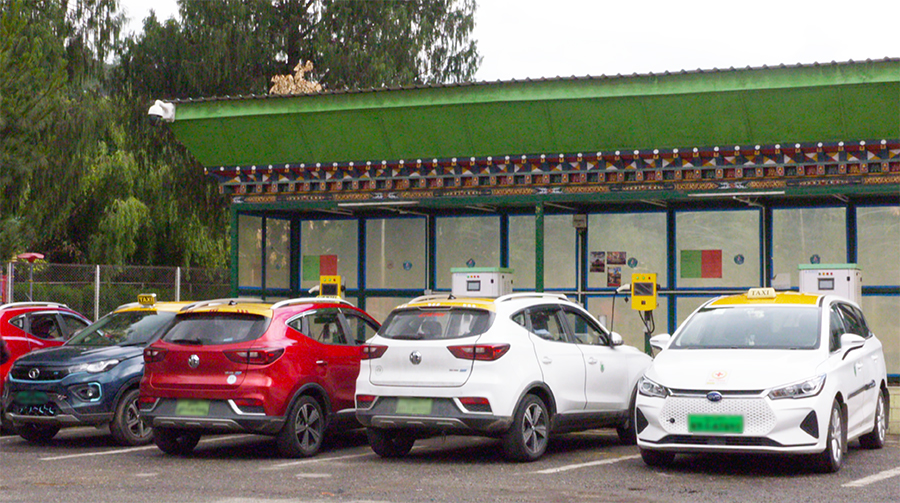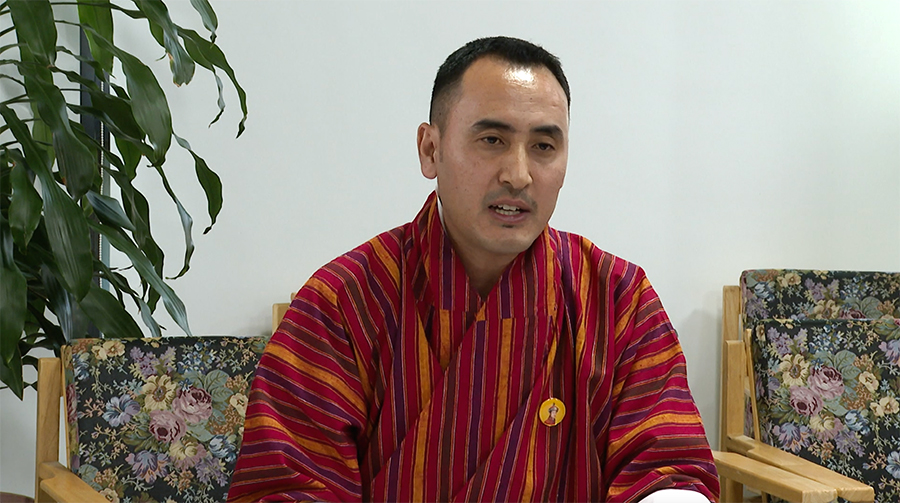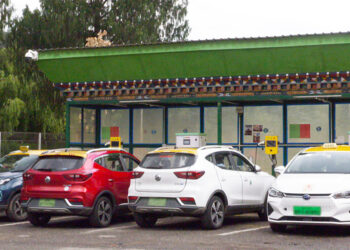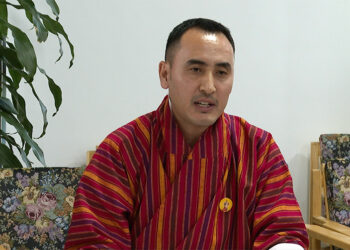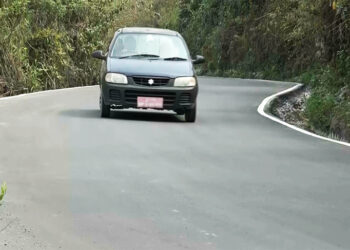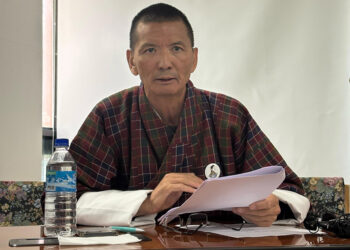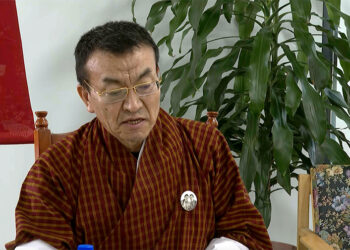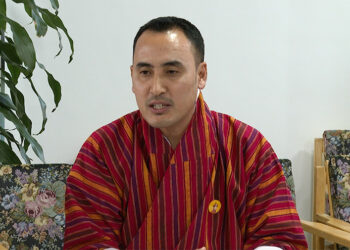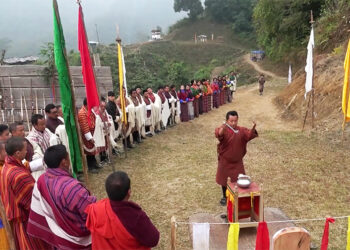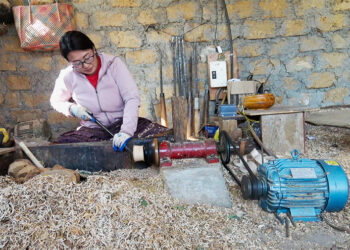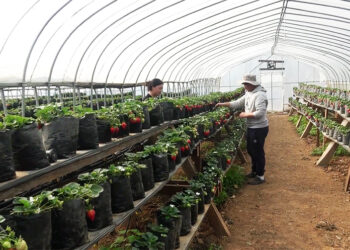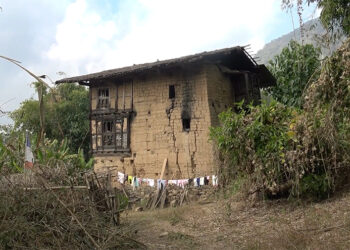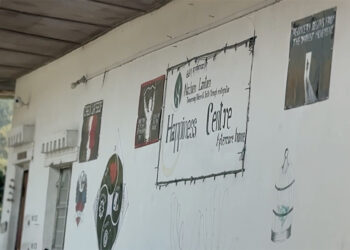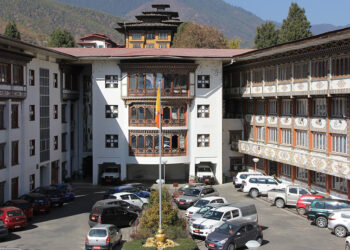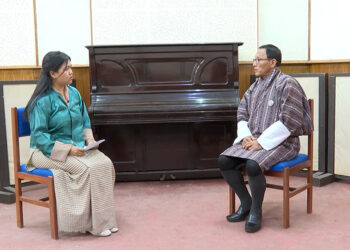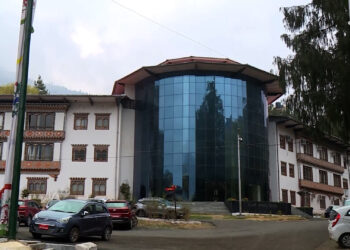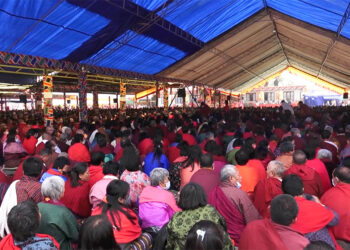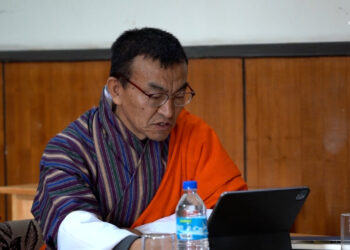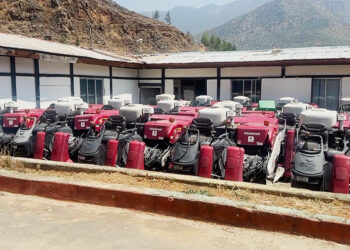Featured News
Centuries-old Londha festival in Dagana celebrates life, tradition and community
Bhutan's deep-rooted traditions and cultural heritage continue to thrive through vibrant local festivals, preserving the nation’s unique identity. Among them,...
RSPN’s drone initiative offers new hope for White-bellied Heron conservation
Drones may revolutionise White-bellied Heron conservation. The Royal Society for Protection of Nature (RSPN) tested drone technology to survey previously...
Breaking barriers in woodturning craft, Sangay Dolma’s journey of craftmanship
Being a woodturner, shaazop is not everyone’s cup of tea, especially not if you are a woman. But Sangay Dolma,...
Young couple turns farming experience and training into thriving strawberry farming business, Dagana
The best ideas often stem from simple observations. This is true for a couple in Tsangkha Gewog in Dagana. After...
Centuries-old house in Dagana : owner in dilemma over preservation and demolition
In Khebisa Gewog of Dagana, a four-storey mud house constructed centuries ago stands as a witness to history. Now, as...
Youth embrace Dung and Jaling crafting skills for income in Pema Gatshel
While many youths from the region have moved to urban areas in search of better job opportunities, a few young...
From addiction to independence, Phuentshogling’s Happiness Centre helps rebuild lives
It is often love and persistence of the family and society that make recovering from an alcohol and drug addiction...
A centenarian’s recipe to longevity
For centenarians who have seen the world for over a hundred years, age usually is just a number. So, what...
Buddha Statue comes alive with Gerry Hofstetter’s light display
The Buddha Statue at Kuensel Phodrang in Thimphu came alive last night with Gerry Hofstetter’s light art. His projections featured...
𝗥𝗲𝗺𝗲𝗺𝗯𝗲𝗿𝗶𝗻𝗴 𝗗𝗮𝘀𝗵𝗼 𝗧𝘀𝗵𝗲𝗿𝗶𝗻𝗴 𝗪𝗮𝗻𝗴𝗱𝗮’𝘀 𝗿𝗲𝗺𝗮𝗿𝗸𝗮𝗯𝗹𝗲 𝗷𝗼𝘂𝗿𝗻𝗲𝘆
Amidst the misty hills of Samtenthang village, the nation bid a heartfelt farewell to one of its most cherished sons,...
Politics
Capacity building training prepares women for future elections
To shatter cultural and social barriers that have long kept them from leadership roles, 20 young and determined women from...
Popular
-
MoIT to reschedule interviews after complaints over lapses in recruitment process
-
14 civil liability cases filed in 2024
-
Nu 60 M in unclaimed dividends remain in stock market
-
Accidents on Chubachu-Jungshina expressway raise growing concern, calls for better safety measures
-
Thimphu District Court sentences Sonam Norbu, founder of VTOB Foundation for voluntary manslaughter
FMCL to receive 20 new combine harvesters by mid of this year – Paro
The Local Leaders of Paro, during the recent Dzongkhag Tshogdu, urged the Farm Machinery Corporation Limited (FMCL) to prepare machines ahead of this year’s paddy harvesting season. This request follows the district’s challenges in previous years, where a shortage of combine harvesters and frequent mechanical breakdowns disrupted the harvest. Combine harvester, a farm machine, is highly sought after by farmers...
Outreach eye camp restores sight to hundreds in Gelephu
The Outreach Microsurgical Eye Camp is restoring eyesight to hundreds of Bhutanese who have lost their vision due to cataracts. The camp is currently underway in Gelephu. Of the 200 patients registered, more than 120 underwent cataract surgery on the first day of the three-day camp yesterday. One of them is 84-year-old Dhan Maya Tamang. She lost her eyesight over...
Nu 4.9 M in unclaimed green tax refunds transferred to government’s account
Unclaimed green tax refunds of nearly Nu 4.9 M have been transferred to the government’s escrow account. During the Meet The Press session today, Finance Minister Lekey Dorji said some vehicle owners did not collect their refunds within the designated time frame. However, the government is allowing three years for vehicle owners to claim their refunds. 11 vehicle dealers were...
PM directs Cabinet Secretariat to investigate unaccounted EV subsidies
Bhutan’s electric vehicle taxi initiative has spiralled into confusion, with millions in subsidies unaccounted for and dozens of EV taxis still undelivered. Now, the Prime Minister has stepped in, ordering the Cabinet Secretariat to launch an urgent investigation into the matter. The ambitious “Sustainable Low Emission Urban Transport Systems” project targeted to replace 300 fuelled taxis with electric vehicles by...
Recent News
- PM directs Cabinet Secretariat to investigate unaccounted EV subsidies
- Government to launch USD 100 M entrepreneurship fund to boost startups
- Long-awaited road upgrade brings joy to Pema Gatshel residents
- Food inflation hits 5.45% in February, government prioritizes local production
- Health secretary highlights gaps in taxation of non-nicotine e-cigarettes
News Category
- Accidents
- Agriculture
- Announcement
- Business
- Crime/Legal
- Culture
- Development
- Disaster
- Economy
- Education
- Entertainment
- Environment
- Feature
- Featured
- Festival
- GMC
- Headlines
- Health
- Legal
- Literature
- Livestock
- Media
- Other Stories
- Politics
- RCSC
- Recent stories
- Religion
- Sci/Tech
- Social
- Sports
- Technology
- Tourism
- Uncategorized
- Video
- Video Story
- Wildlife
© 2024 BBSCL. All rights reserved.

